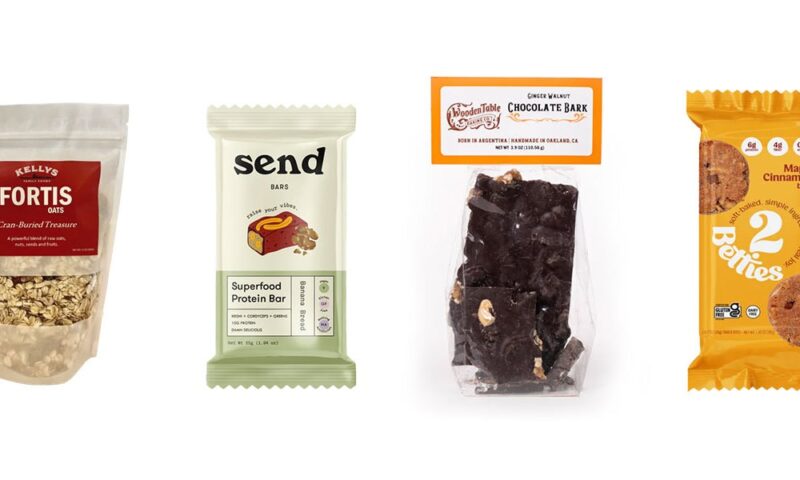More consumers are seeking foods that help manage risk factors and provide digestive health benefits, with 60-70 million people affected by digestive diseases. Good gut health may be linked to a variety of health benefits including those for digestion, metabolism and the immune system.
The gastrointestinal tract starts at the mouth and extends down the esophagus, stomach, small intestine and large intestine. The “gut” primarily refers to the colon, where most of the microbes in the body live, as well as the stomach and small intestine, which have microbes, but to a lesser extent. While there is no one set composition for a “healthy” gut microbiota, as an optimal gut microbiota is different for each individual1, there is consensus that gut microbes are important for health and a growing body of interest in exploring the interaction between gut microbes and what we eat.
Emerging research has found that eating walnuts may alter the gut microbiome in ways that positively support heart health, gastrointestinal diseases and inflammation. Below is an overview of some of the latest research.
Walnut consumption has been associated with positive changes to the gut microbiome.

- A healthy heart may start with a healthy gut. A clinical trial2 published in The Journal of Nutrition explored how eating walnuts may promote favorable changes in the gut that may also be associated with heart health benefits, specifically for blood pressure and cholesterol.
- A study3 from the USDA and University of Illinois, published in The Journal of Nutrition, found that walnut consumption was associated with positive changes to the gut microbiome. Adults who ate 42 grams (about 1.5 ounces) of walnuts each day for three weeks experienced an increase in beneficial gut bacteria and a decrease in secondary bile acids, which may play a positive role in colon cancer, inflammation and gastrointestinal diseases.
- A study4 published in Nutrients found that consuming a walnut-enriched diet positively impacted the gut microbiome by enhancing good probiotic and butyric acid-producing bacteria. Butyric acid is thought to be useful for digestive health by helping to maintain the health of the colon.
- An animal study5 published in The Journal of Nutritional Biochemistry found that walnut consumption may be beneficial for digestive health by increasing the amount of probiotic-type bacteria in the gut.
- An animal study6 published in Cancer Prevention Research suggests that adding walnuts to a Western-style diet may alter the gut microbiota in a way that may reduce risk for colorectal cancer.
- An animal study7 published in Nutrients suggests walnut consumption may help protect the colon from inflammation caused by digestive disorders like ulcerative colitis. This could be due to metabolites that increase after eating walnuts such as omega-3s, antioxidants like ellagic acid or amino acids like tryptophan.
Go With Walnuts:
Choosing the right foods to fuel your gut microbiome is key. Research shows that walnuts may be a good choice because of their prebiotic properties, which support gut health and enhance the growth of beneficial bacteria. Pair walnuts with other foods that are good for gut health including barley, lentils, asparagus, mushrooms, garlic, beans, bananas, dark chocolate, pears and berries. Check out the following recipes!- Bulgur Salad with Green Lentils and Walnuts
- Walnut and Mushroom Ragu
- Dark Chocolate Bark with Walnuts and Dried Cranberries
Sources:
1 Rinninella E, Raoul P, Cintoni M, et al. What Is the Healthy Gut Microbiota Composition? A Changing Ecosystem Across Age, Environment, Diet, and Diseases. Microorganisms. 2019;7(1):14. Published 2019 Jan 10. doi:10.3390/microorganisms7010014.
2 Tindall AM, McLimans CJ, Petersen KS, et al. Walnuts and Vegetable Oils Containing Oleic Acid Differentially Affect the Gut Microbiota and Associations with Cardiovascular Risk Factors: Follow-up of a Randomized, Controlled, Feeding Trial in Adults at Risk for Cardiovascular Disease. J Nutr. 2020 Apr 1;150(4):806-817. doi:10.1093/jn/nxz289.
3 Holscher HD, Guetterman HM, Swanson KS, et al. Walnut Consumption Alters the Gastrointestinal Microbiota, Microbially Derived Secondary Bile Acids, and Health Markers in Healthy Adults: A Randomized Controlled Trial. J Nutr. 2018;148(6):861-867. doi:10.1093/jn/nxy004.
4 Bamberger C, Rossmeier A, Lechner K, et al. A Walnut-Enriched Diet Affects Gut Microbiome in Healthy Caucasian Subjects: A Randomized, Controlled Trial. Nutrients. 2018;10(2):244. doi:10.3390/nu10020244.5 Byerley LO, Samuelson D, Blanchard E, et al. Changes in the Gut Microbial Communities Following Addition of Walnuts to the Diet. J Nutr Biochem. 2017. doi:10.1016/j.jnutbio.2017.07.001.
6 Nakanishi M, Chen Y, Qendro V, et al. Effects of Walnut Consumption on Colon Carcinogenesis and Microbial Community Structure. Cancer Prev Res (Phila). 2016;9(8):692-703. doi:10.1158/1940-6207.CAPR-16-0026.
7 Nakanishi M, Matz A, Klemashevich C, Rosenberg DW. Dietary Walnut Supplementation Alters Mucosal Metabolite Profiles During DSS-Induced Colonic Ulceration. Nutrients. 2019;11(5):1118. doi:10.3390/nu11051118.



